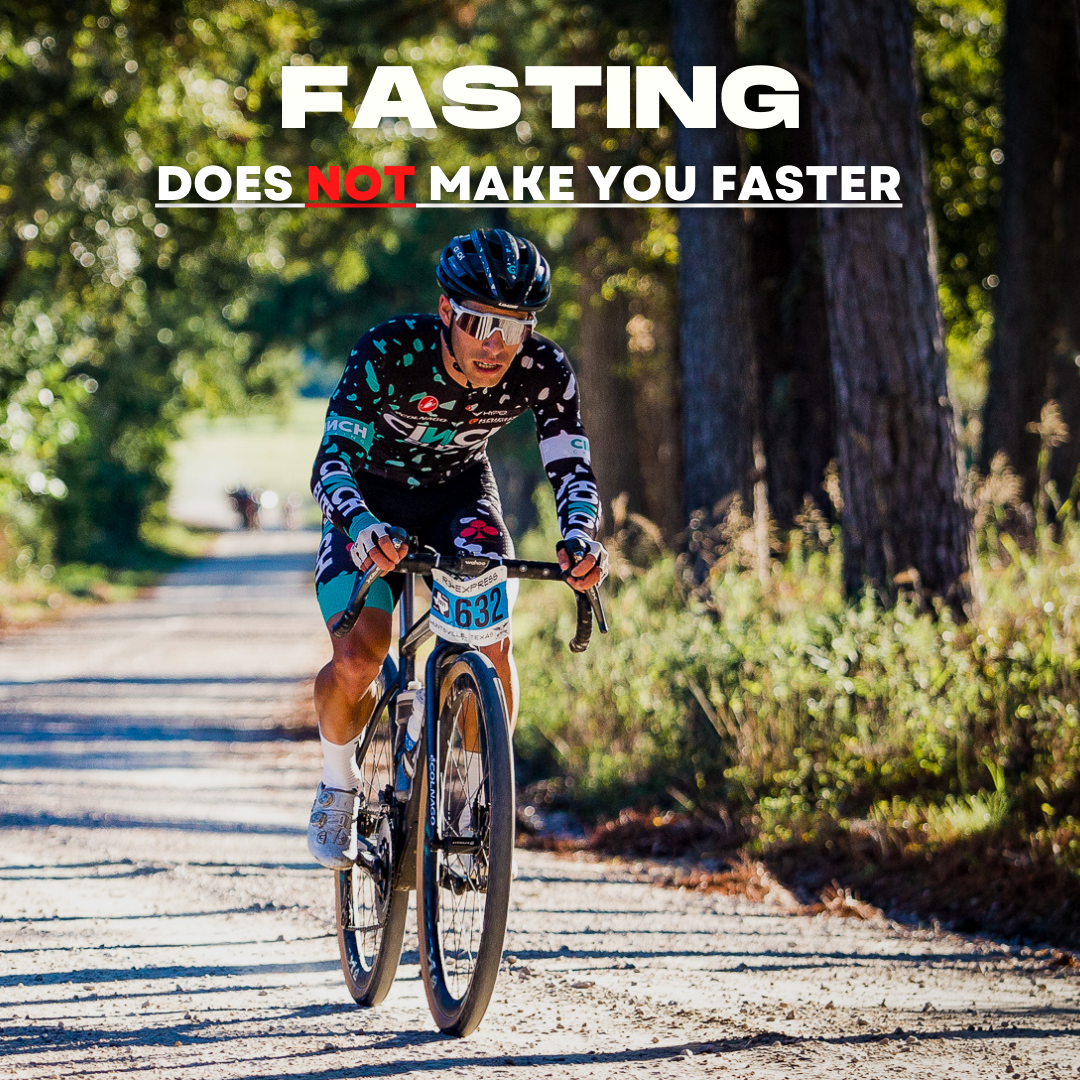Intermittent fasting, fasted rides, and water fasts are all the rage these days. Well, "fasting" is just an imaginative way of saying not eating. We see so many athletes on the fasting train yet still struggling with digestion, hormone function, and weight-loss; here is why.
We all know the losses in terms of performance when under fueled. We are unable to train at high intensities for sustained periods. Most have experienced bonking or cramping due to glycogen depletion from not fueling properly. Compounded long-term, most will experience a loss in the range of zones, specifically top-end and overall fitness level.
But let's dive into the lesser-known physiological effects of fasting.
Skipping meals puts the body in a stressed state and slows down the metabolism. The reduction of the metabolism increases stress hormones, which increases muscle wastage and reduces energy levels. All bad things for athletes, right? Well, it gets worse. Long-term fasting increases the amount of free fatty acids in our blood. Free fatty acids contribute to stress by impairing sugar metabolism, damaging insulin receptors, and raising estrogen and cortisol levels. Excess cortisol levels caused by this and other stressors are tied to belly fat around the midsection and inflammation, hindering recovery. As you can see, "not eating" can lead to a cascade of unintended effects. Anything that slows metabolism and decreases thyroid function will hinder optimal performance and be harmful long term.
Do you know anyone that's continually dieting, and whenever they are "off" their diet, they immediately gain tons of weight? This is likely due to slow metabolism and under-functioning thyroid, which extreme diets like fasting can cause.
We don't need to give our digestive systems a break because our bodies naturally fast while we sleep. We are giving it optimal time to reset. You can support your body by eating within an hour of waking, eating before and after exercise, and eating balanced meals throughout the day, including a range of protein, carbohydrates, and fat.
Constantly and efficiently fueling our bodies throughout the day is key to athletic progression and vital to health.

